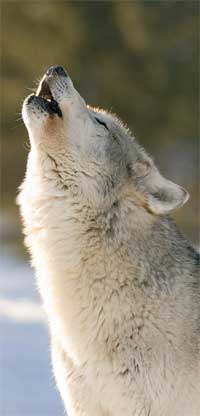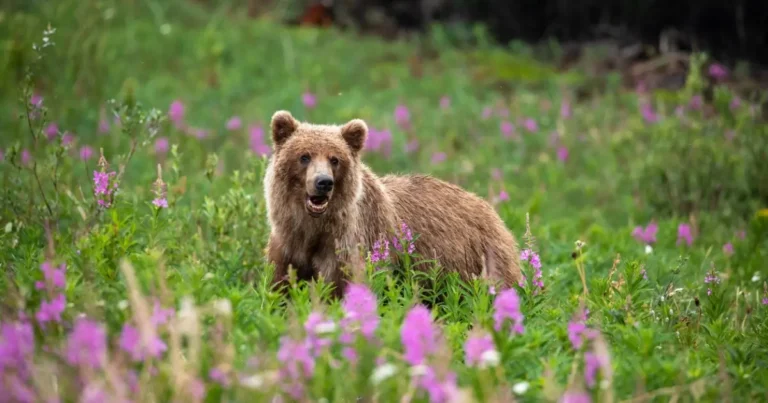
On November 14, 2012, the B.C. government unveiled its Draft Wolf Management Plan. This draft wolf plan goes on to outline a barbaric and grim future for B.C. wolves that amounts to a government sponsored kill program.
The plan is full of discussion on the “harvesting” of wolves, as if they are some kind of crop like wheat or barley. It further states the lofty objective to “…ensure self-sustaining populations throughout the species range.” A self-sustaining population is a good start, but nothing to be too proud of when the report states that would allow for harvest rates of up to 34%. Recent research in Ontario’s Algonquin Provincial Park by Dr. Linda Rutledge has shown that unexploited wolf populations behave differently than family-based packs which are natural. Rutledge, her team and many wolf advocates urge that conservation policies need to look beyond numbers and take social dynamics into account.
The draft makes no mention of unique genetic populations that exist across the province, nor that BC is one of the last places on Earth where wolves can live as nature intended. This province has an opportunity to do something that very few other places on the planet have; to deliberately preserve wolves in their most natural form as part of a functioning ecosystem. The current draft does not support such a goal.
Hunting seasons would continue to range from 9 months to year round, with many areas having no bag limits, no mandatory reporting, and no harvest quotas. The draft plan states that hunting will continue to be based on ethics such as humane treatment, although the plan includes trapping with neck snares and leg hold traps which have been banned in other countries for their cruelty.
Landowners with livestock concerns would continue to be permitted to hunt and trap wolves on their own property, although there is no evidence to show that indiscriminately killing wolves works as a long-term solution to reducing livestock losses; depredations occur in areas that have been practicing lethal control for decades. In fact, in certain parts of BC and North America, killing wolves indiscriminately may have lead to increased depredation rates on livestock the next year.
One of the objectives listed in the plan is to “Control specific populations where wolves are preventing caribou recovery”. This is really a continuation of the slaughter that began in 2001, sterilizing and killing wolves while development continues. To date the wolves that have been killed have provided no evidence of more caribou, but the government wants the killing and sterilization to continue. In the meantime, so will mineral exploration, snowmobiling, heli-skiing, and other activities that compromise sensitive caribou and many other species.
When wolves are being killed through hunting, trapping, livestock concerns, failing caribou herds, and on transportation routes across the majority of the province, many concerned groups consider this a destitute ecosystem as extended family members are butchered in a human-dominated landscape. It is the wolf pack that is the top predator, not the individual wolf.
The number of wolves killed in BC has been increasing over the years. It is little wonder these numbers are rising as incentives are offered to people to kill wolves where bag limits have increased and “harvest” seasons lengthened.
There is no discussion of quality of life for wolves and of what it actually means to disrupt the social bond of a pack or extended family with trapping, hunting, poisoning, aerial killing and other means legally employed to kill wolves in B.C. The evolutionary impact of reduced genetic diversity in wolf populations that are forced to suffer such high levels of human caused mortality is also not discussed in this plan.
Wolves may remain as a species in BC for a long time due to their resilient nature, but most ecologists and conservationists would judge this as an impoverished ecosystem if wolves are not able to live out their lives in their most natural form; with family members. Management plans for wolves must consider more than mere numbers if there is any intention of true conservation.
The way this draft plan is structured, unless significant public opposition is mobilized in the coming weeks, the B.C. government will further relax and liberalize wolf hunting, trapping and other kill programs for years to come. Several concerned groups will be following this issue and speaking out for wolves as what is clearly shaping up to be a renewed government-sanctioned assault on B.C.’s wolves.
These groups include:
Association for the Protection of Fur-Bearing Animals
Pacific Wild
Valhalla Wilderness Society
Raincoast Conservation Foundation
LifeForce Foundation
Northern Lights Wolf Centre
World Temperate Rainforest Network
Peter A. Dettling Wilderness Education Centre
Speak out for BC’s wolves. Voice your concern:
Online: Submit comments in the space provided at:
http://www.env.gov.bc.ca/fw/public-consultation/grey-wolf/
Or contact:
Honourable Steve Thomson
PO BOX 9049 Stn. Prov. Govt.
Victoria, BC
V8W 9E2
Telephone: 250 387-6240
Fax: 250 387-1040
Steve.Thomson@gov.bc.ca
steve.thomson.mla@leg.bc.ca
For more information about BC wolves, contact Sadie Parr at sadester@hotmail.com

